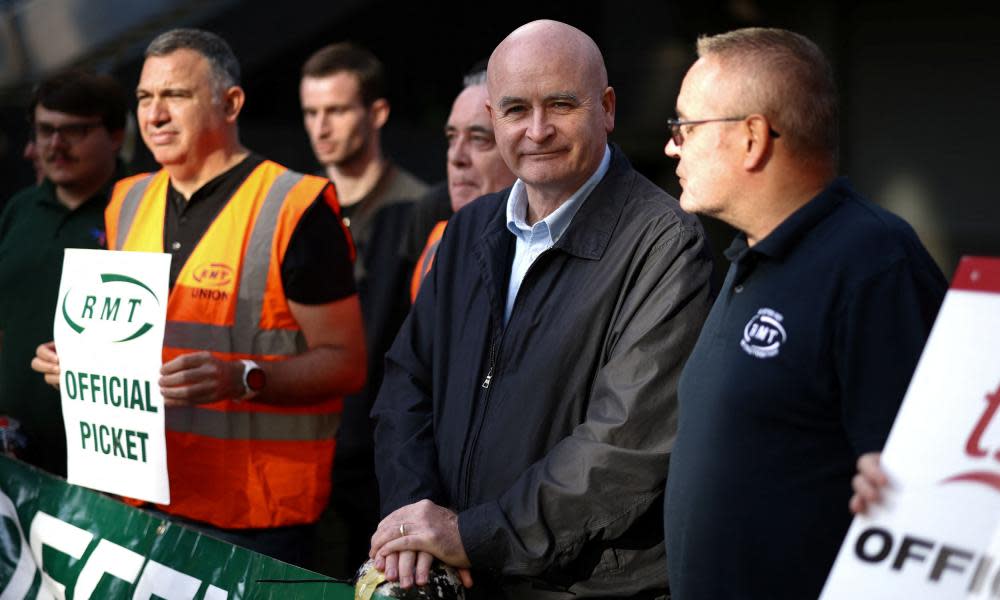Rail unions say government plans to limit strikes will ‘enrage’ members

Rail unions have said plans announced by the chancellor to limit the scope of strikes and pay negotiations will further “enrage” their members, before a period of sustained industrial action.
On Friday, Kwasi Kwarteng announced moves not only to ensure minimum service levels during transport strikes, obliging unions to ensure trains run, but also to legislate to require unions to put any pay offers from employers to a vote.
With strikes expected to halt most train services at the start of the Conservative conference at the beginning of October, the chancellor told the Commons that the disruption caused was unacceptable.
He said other European countries had minimum service levels to stop “militant trade unions”, and the UK government would do the same, “and go further”.
Kwarteng said: “We will legislate to require unions to put pay offers to a member vote to ensure strikes can only be called once negotiations have genuinely broken down.”
Mick Lynch, the general secretary of the RMT union, said: “We already have the most severe anti-democratic trade union laws in western Europe and this latest threat will rightly enrage our members.
“The government should be working towards a negotiated settlement in the national rail dispute, not seeking to make it even harder to take effective strike action. Unions will not sit idly by or meekly accept any further obstacles on their members exercising the basic human right to withdraw their labour.”
Manuel Cortes, the general secretary of the TSSA union, which confirmed it would be joining the October rail strikes on Friday, said: “This new Tory proposal will serve only to elongate disputes and generate greater anger among union members. It will do precisely nothing to encourage employers to come to the negotiating table with realistic offers.”
Rail bosses have however expressed frustration that staff have not been able to vote on pay offers during negotiations.
Related: Kwasi Kwarteng’s mini-budget: key points at a glance
Network Rail’s chief executive Andrew Haines – whose annual net pay on his £588,000 salary will increase by £20,000 due to another move announced by Kwarteng, to scrap the top rate of income tax – said: “Our latest offer – an 8% pay rise over two years with other benefits – is affordable from within our own budget, but the RMT refuses to allow its members to vote on it.
“The decision by unions to strike again serves only to prolong disruption for passengers, undermine the railway’s recovery from the pandemic and ensure railway staff forgo even more of their pay unnecessarily.”

 Yahoo News
Yahoo News 
